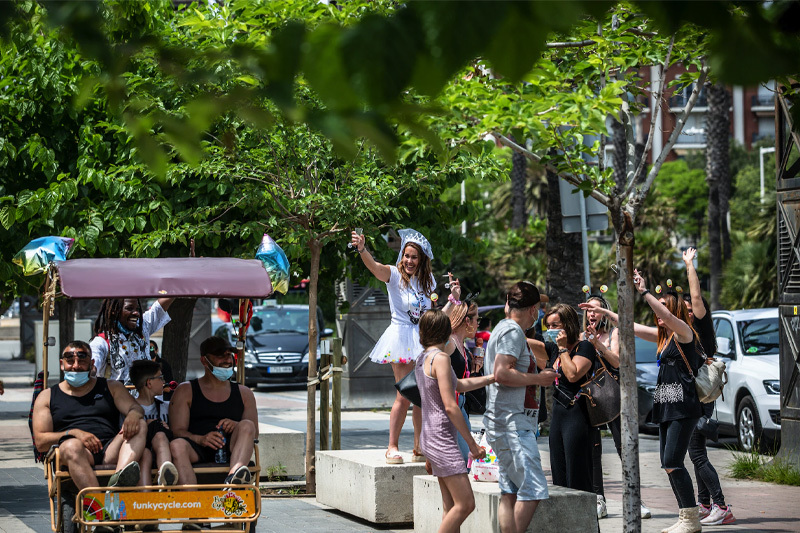
Overtourism Creates More Headaches Than Revenue. How’s Spain Dealing With It?
Last year, Spain was the second-most visited country in the world, with 83.7 million international arrivals (just behind France). While tourism aids the Spanish economy, it has also had a negative impact on communities and the natural environment.
Scores of local Spaniards have to regularly deal with noise pollution, drunken and rowdy behaviour, crowding in streets and the displacement of housing for locals in favour of short-term rentals. Dozens of Spanish cities have been trying to clamp down on these problems.
Sharp Rise In Rules For Tourist Behaviour
The Andalusian city of Seville has set out numerous restrictions aimed at curbing antisocial behaviour, specifically from stag and hen parties. Inflatable dolls with added appendages and revealing costumes will now be banned, with rule breakers penalised.
In 2022, Málaga announced it would introduce fines for anyone wearing inappropriate clothing in the streets and carrying inflatable dolls with sexual connotations. Granada and Córdoba have also tried to clamp down on these wild parties. But the problem is not only coming from abroad.
Keep Reading
In certain areas of Mallorca, bar crawls, party boats with open bars and the sale of alcohol between 9:30 PM and 8 AM have all been prohibited. And dress codes in metropolitan areas suggest visitors must be respectful and cover up in public, even if it is stifling hot.
For businesses, overtourism is a mixed bag. While many are, undoubtedly, happy for the extra customers, tourists create more headaches than revenue for others. Barcelona deli Queviures Múrria has started charging visitors who just want to enter and take pictures.
If Tourist Numbers Continue To Rise …
While policies such as banning drinking on the streets and introducing penalties have started helping curb antisocial behaviour, Spain still has a long way to go. If the tourist numbers continue to rise, it is not just rules on alcohol and costumes that will have to be unveiled.
Expect more crackdowns on tourist apartments, caps on visitor numbers and limits on cruise ships. In fact, some Spanish tourism experts expect the country by the end of the year will have welcomed even more visitors than the record-breaking 83.7 million in 2019.




